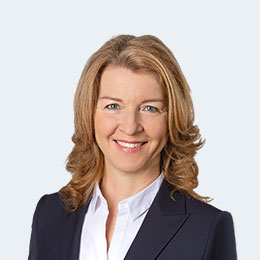Golding Capital Partners, one of Europe’s leading independent asset managers for alternative investments, has held the final closing of its largest ever buyout programme, Golding Buyout 2018, with record commitments of some €375 million. Existing LPs were joined by new investors in committing to this third-generation fund, which has a particular focus on the growth opportunities created by the digital transformation. Investors will be able to subscribe to the successor of the successful investment programme in the second half of 2021.
In the Golding Buyout 2018 programme the asset manager works with established, mostly invitation-only fund managers in Europe and North America to exploit the return potential of small and mid-cap buyout transactions. Commitments for the programme have already been made to the first funds, specialising in software and technology, healthcare and industrial services. To further optimise the programme the investment strategy also comprises selected secondary transactions and co-investments. Ultimately the portfolio is expected to consist of around 300 buyout transactions, broadly diversified across regions, fund managers and vintage years.
“In this programme we are particularly emphasising growth strategies in the software and technology sector, which will be among the main winners as the digital transformation gathers pace. In recent months we completed two co-investments in European technology companies, for instance, which have continued to grow strongly even through the lockdown. In the current market environment it is essential to work with fund managers who can support their portfolio companies with their sector experience, networks and functional expertise. We have access to these managers”, explains Managing Partner and CIO Dr Matthias Reicherter.
Resilience at times of crisis and good prospects
Private equity transactions have in the past proven to be robust when the situation for the economy is challenging. So far this has also been the case in the current crisis, since companies can rely not only on their own strengths, but also on receiving support from their owners in the form of expertise and additional capital if necessary.
Around 80% of the Buyout 2018 investment programme has already been allocated to 17 target funds and will be largely invested from 2021 onwards. “Historically, funds from vintages that invested in the years after a crisis had good entry opportunities. So we are confident that we will deliver our target returns for our investors with this buyout programme too”, adds Dr Matthias Reicherter.
Golding’s record buyout fund particularly popular with existing investors
A total of 29 investors have committed to the fund, mostly insurance companies, pension funds, banks and foundations from German-speaking countries. The great majority of them, around 76 per cent, are existing investors, some of whom have also invested with Golding in private debt or infrastructure programmes. Managing Partner Hubertus Theile-Ochel emphasised: “It is thanks to the great response from our investors that we were able to raise our biggest ever buyout fund at this challenging time. That is a vote of confidence for which we are very grateful. At the same time it shows that our investors appreciate how our cutting-edge buyout strategy can make an important contribution to a successful alternative investment portfolio.”
Golding expects to launch the follow-on programme in its proven buyout strategy in the second half of the year. The buyout co-investment programme is currently in fundraising, with a first close planned for spring 2021.
Golding’s long track record in buyout
Golding is an established buyout investor, with 20 years of experience, having invested in around 140 primaries, secondaries and co-investments to date, gaining exposure to some 1,700 private equity transactions. Golding currently manages around €1.9 billion in the buyout asset class across 24 investment programmes (including funds of funds, co-investment funds and managed accounts).

